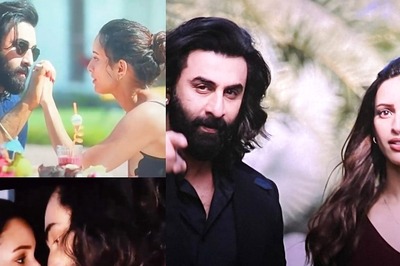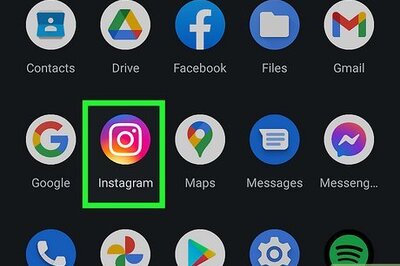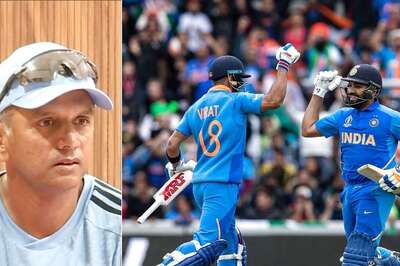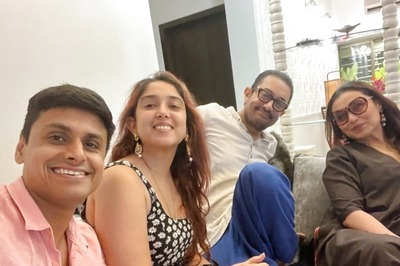
views
Much like her protagonist Sehmat in Raazi, there are no heights that director Meghna Gulzar can’t scale.
Born into film royalty— the daughter of veteran poet, film lyricist and director Gulzar and actress Rakhee, Meghna came to filmmaking via assisting her father on his films Maachis and Hu Tu Tu. She became a full-fledged director with 2002 movie Filhaal, which was well-received. In the intervening years, she helmed Fardeen Khan-starrer Just Married and was one of the directors on Dus Kahaniyaan.
But it was her film Talvar, based on the 2008 Aarushi Talwar double murder case, that completely changed Meghna’s directing game and seemingly helped her gain ground in the industry.
Three years later, she decided to adapt Harinder Sikka’s novel Calling Sehmat that tells the story of a Kashmiri Muslim woman who was married off by her father to a Pakistani Army officer so that she could be a spy for India in Pakistan, into a movie. With Alia Bhatt in the lead role, it turned out to be a perfect fit.
But Meghna made sure that Alia was not just any spy. “There’s an unflinching selflessness in her. For a girl of her age to agree to do this and then never look back, it’s a tremendous strength of character which is rare in today’s times,” Meghna told us about what makes Sehmat stand apart from other patriotic spies that we have so far seen in Bollywood.
Raazi received largely positive reactions and did record-breaking business at the box office. It has currently been nominated for Best Film at the upcoming News18 REEL Movie Awards. Meghna, who has set a huge benchmark for other Bollywood films to hit in the coming years, is also up for Best Director nomination. In a freewheeling chat, Meghna spoke to us about her vision of the movie, how she set about capturing the right tone-- and whether its experience changed her in any way.
Excerpts from the interview:
While you were co-writing the screenplay of Raazi, did you have to compromise with your vision in order to make it look more mainstream?
I was writing with Bhavani Iyer who is the co-writer on Raazi. The film is based on a book so that was our guiding framework. The layers that sprung up which we realised after we finished editing the film that they were all subliminally there -- the layers of showing Pakistanis as normal people just like us. One thing I knew was that the futility of war was something we wanted to touch upon with this film. For me, that is the largest take away from this girl’s journey. But beyond that we didn’t do anything because that’s being dishonest to your material and craft. I don’t at least manipulate material like that and thankfully once the film was made we didn’t have to edit by producers suggestions. Fortunately for us, it was a very good journey.
Is there anything you wanted to do with the character you didn’t get to because the film was an adaptation?
No. In fact, I don’t think the character’s conscience in the book is touched upon with the shades that we have in the film. In the book, she (Sehmat) is pretty straightforward but the repercussions of her actions are not really detailed in the book and that is what we wanted to do. Because she is a living being and no matter what her sense of duty or righteousness when you are doing something that goes against your moral fiber, you will have a moment where you question your actions. So we wanted to do that and we did it. There was nothing that we didn’t get to do.
When you started the project, was the casting nailed down? Also, how do you generally approach a movie for a character where the role is cast by someone else?
That hasn’t happened to me so far and I don’t think it will. If you are going to give something your own vision or expression then you have to do it all from start to finish. You can’t come in midway when something has been done and written by somebody else, cast by somebody else then; ‘What are you coming in to do?’ Say, action and cut? It doesn’t work like that.
Since Raazi is set in 1971, were there any challenges that you faced during its production in terms of depicting it in the present time?
Making a period film itself is a challenge no matter which period it is set it and we all went into it with our eyes open. We always knew it was set in 1971 and we worked around it—from footwear to the shopping bag to the shops and the stuff sold in those shops.
Raazi became one of the highest-grossing Indian films featuring a female protagonist. Were you surprised?
Of course, the kind of love and acceptance that the film got was a very beautiful sweet surprise. We didn’t go into it expecting this. Ours was a small little intimate film because we were crossing a lot of stereotypes. It was a female-led and that female was a Kashmiri Muslim, it was spy thriller which is unlike the usual spy thrillers in terms of its execution, content and sensibilities. So, it was very unlike a mainstream thriller that we have seen so far. And we were aware of that it was not something that happened by chance. So, in spite of it not being made within a template that is familiar for it to get the acceptance that it did was very gratifying.
But how long until we can stop pointing out women’s achievements because they’re not surprising anymore...
Honestly, when Raazi broke out and did the kind of numbers that it did like you mentioned that it was one of the highest-grossing films featuring a female protagonist; I’d say, ‘Yes, they are statistics, but that’s all.’ I personally would not keep underlying these facts because for me it’s a story. It’s a story about an ordinary Indian in an extraordinary circumstances and that Indian happens to be a girl. I happen to be a female director but I don’t think there’s anything that I do less or more because of my gender as a director.
Having said that, do you think Raazi needed a woman to direct it?
I haven’t thought about it. I just believe that I was meant to tell this story because it kept finding me through different avenues. Maybe a male director would have treated it differently. But I don’t look at things with lens of gender. I choose not to. I’d like to say that maybe a more accomplished director would have executed it far better than I did.
Did its experience change you as a filmmaker?
I said this while I was making the film and I continue to say it that it was my happiest experience as a director because there was something magical about the energy on the film. Everybody came into it with sense of investment and that’s what showed on screen. When I was making Talvar I had Vishal (Bhardwaj) with me, so there were collaborative decisions. But with Raazi I was doing all this alone so it was scary. But the way Raazi turned out and the acceptance it’s got I started having a little more confidence and comfort in the decisions that I took, so it was extremely fulfilling for me as a filmmaker.
Your thoughts on REEL initiative...
I really think it's a great initiative if it is intended to award content-driven cinema and meaningful cinema. I just hope it reflects in the cinema that is awarded when the verdicts are out. Commercial success is something that you can't predict but the intent for every filmmaker is to make a film that get acceptance and if along with entertaining, it can be meaningful and contextual to the society that you're living in, even the smallest effort like this helps that kind of cinema. And, if Network 18 is doing this with these awards, it is something very encouraging to films that want to make a difference irrespective of their box office performances.
Follow @News18Movies for more




















Comments
0 comment